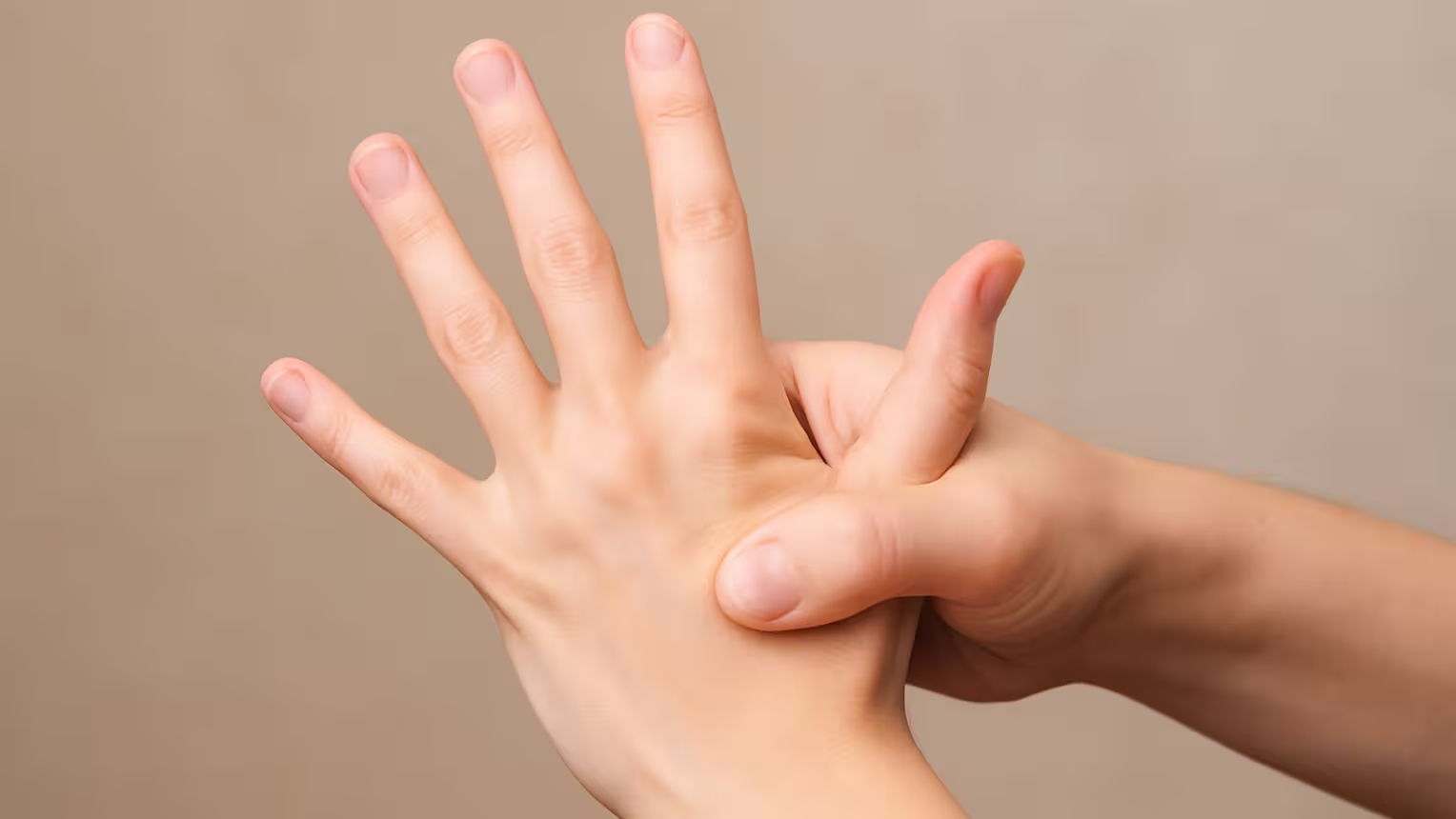If you’re a habitual knuckle cracker, you’ve likely been warned:
“Stop that—you’re going to get arthritis!”
It’s a claim that’s been passed down through generations. But is there any truth behind it, or is it just one of those health myths that refuses to die?
Let’s break down the science behind knuckle cracking, what it actually does to your joints, and whether it truly leads to arthritis.
Table of contents
What Really Happens When You Crack Your Knuckles?
That pop or crack sound you hear isn’t your bones grinding or breaking. It’s actually the sound of gas bubbles bursting in the synovial fluid—the lubricating fluid inside your joints.
When you stretch or bend your fingers, you change the pressure in the joint space. This causes dissolved gases like nitrogen and carbon dioxide to form bubbles and then collapse or pop. That’s what creates the sound.
This process is called cavitation, and it’s completely normal.
What Does Science Say? Is There a Link to Arthritis?
Despite the long-standing myth, there is no scientific evidence to suggest that cracking your knuckles causes arthritis.
Let’s look at some key research:
- 🧪 Dr. Donald Unger’s self-study: He cracked the knuckles on his left hand every day for 60 years, but not his right hand. Result? No arthritis in either hand. He even won an Ig Nobel Prize for it in 2009!
- 🧬 A study in the Journal of the American Board of Family Medicine (1990) found no increased incidence of arthritis among knuckle crackers compared to non-crackers.
The bottom line? Cracking your knuckles doesn’t cause arthritis.
But Is It Completely Harmless?
While cracking your knuckles won’t give you arthritis, it may not be entirely risk-free either—especially if done excessively.
Possible downsides:
- Reduced grip strength: Some small studies suggest habitual cracking might be linked to weaker grip strength.
- Soft tissue swelling: Repetitive cracking can irritate the soft tissue around the joint, leading to temporary swelling.
- Annoying others: Let’s be honest—most people just find the sound super annoying!
However, none of these effects are as severe or long-term as arthritis.
Why Do People Crack Their Knuckles Anyway?
For many, it’s habitual—a nervous or calming mechanism, like tapping your foot or biting your nails.
Some people say it feels like it relieves pressure in the fingers. And in fact, there’s a small release of tension when joints pop, which might offer momentary comfort.
When Should You Be Concerned About Joint Cracking?
There’s a difference between casual knuckle cracking and joints that crack or pop without you trying to do it, especially if the sound is accompanied by:
- Pain or discomfort
- Swelling
- Loss of movement
- A grinding sensation
These could be signs of joint degeneration, inflammation, or injury, and you should consult a healthcare provider if you notice these symptoms.
So, What Causes Arthritis Then?
Let’s clear up some facts. Arthritis refers to joint inflammation, and there are different types, including:
- Osteoarthritis – caused by joint wear and tear, age, and genetics
- Rheumatoid arthritis – an autoimmune disease
- Gout and psoriatic arthritis – caused by metabolic or immune issues
Key risk factors include:
- Genetics and family history
- Joint injuries or overuse
- Aging
- Obesity
- Autoimmune conditions
Knuckle cracking is not on that list.
Tips for Joint Health (With or Without Cracking)
If you want to maintain healthy joints well into old age, focus on these lifestyle habits:
- Stay active with low-impact exercise like walking, swimming, or yoga
- Maintain a healthy weight to reduce pressure on joints
- Eat a balanced diet rich in anti-inflammatory foods like leafy greens, berries, and omega-3s
- Strengthen muscles around your joints to provide support
- Take breaks from repetitive hand activities, especially if you work at a keyboard
The Final Verdict
Cracking your knuckles won’t give you arthritis. Science has thoroughly debunked that myth. So, if it gives you relief or feels satisfying, go ahead—just don’t overdo it, and be mindful if you experience any pain.
Next time someone warns you about arthritis because of your cracking habit, you can confidently tell them: “Actually, science disagrees!”






1 thought on “Does Cracking Your Knuckles Cause Arthritis? The Truth”
Comments are closed.